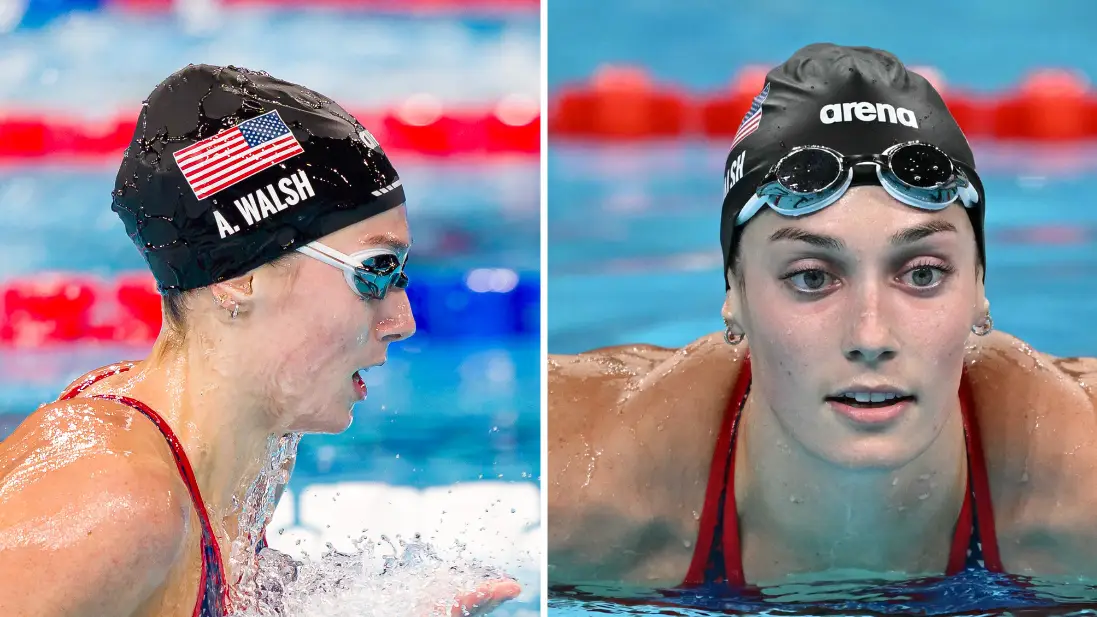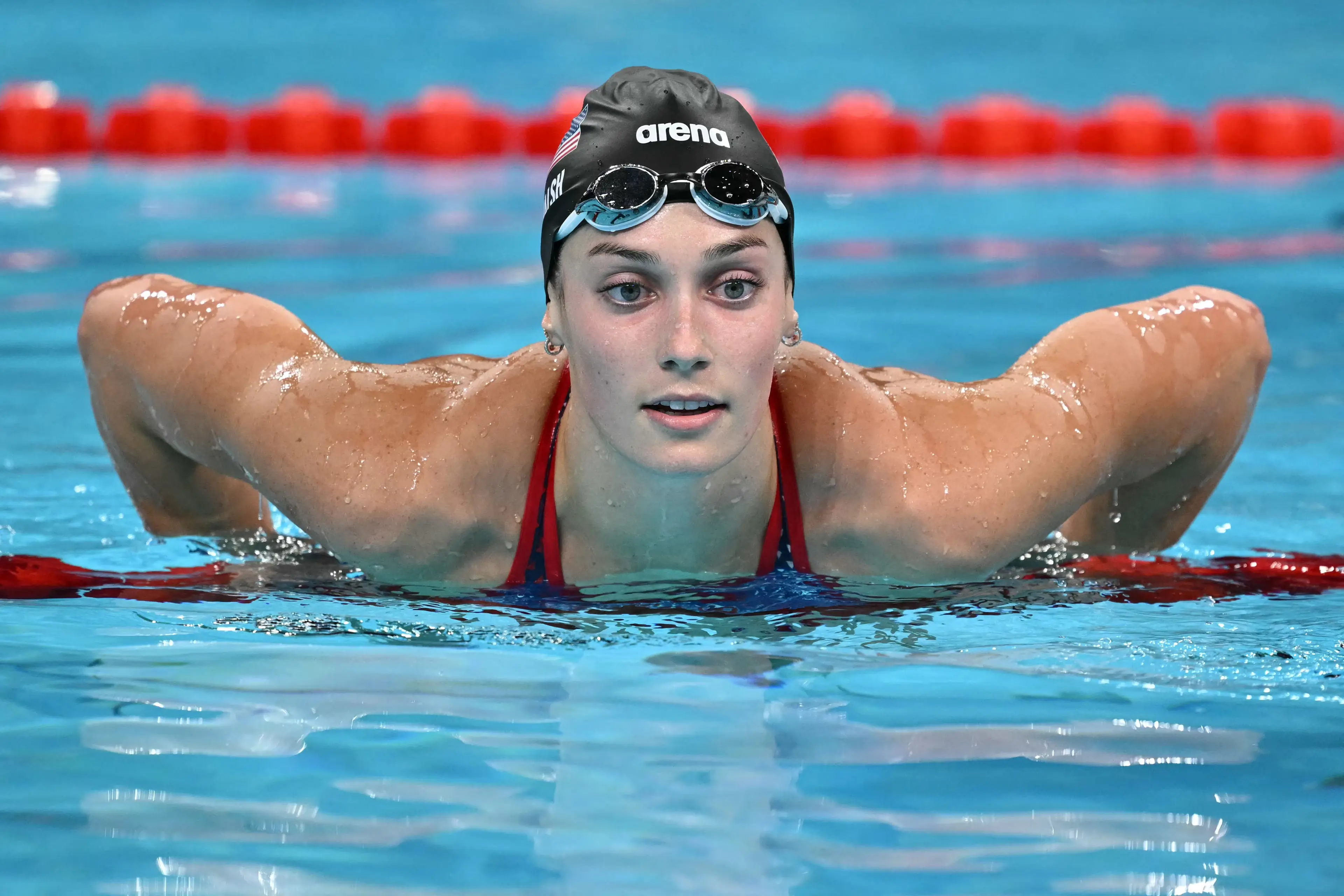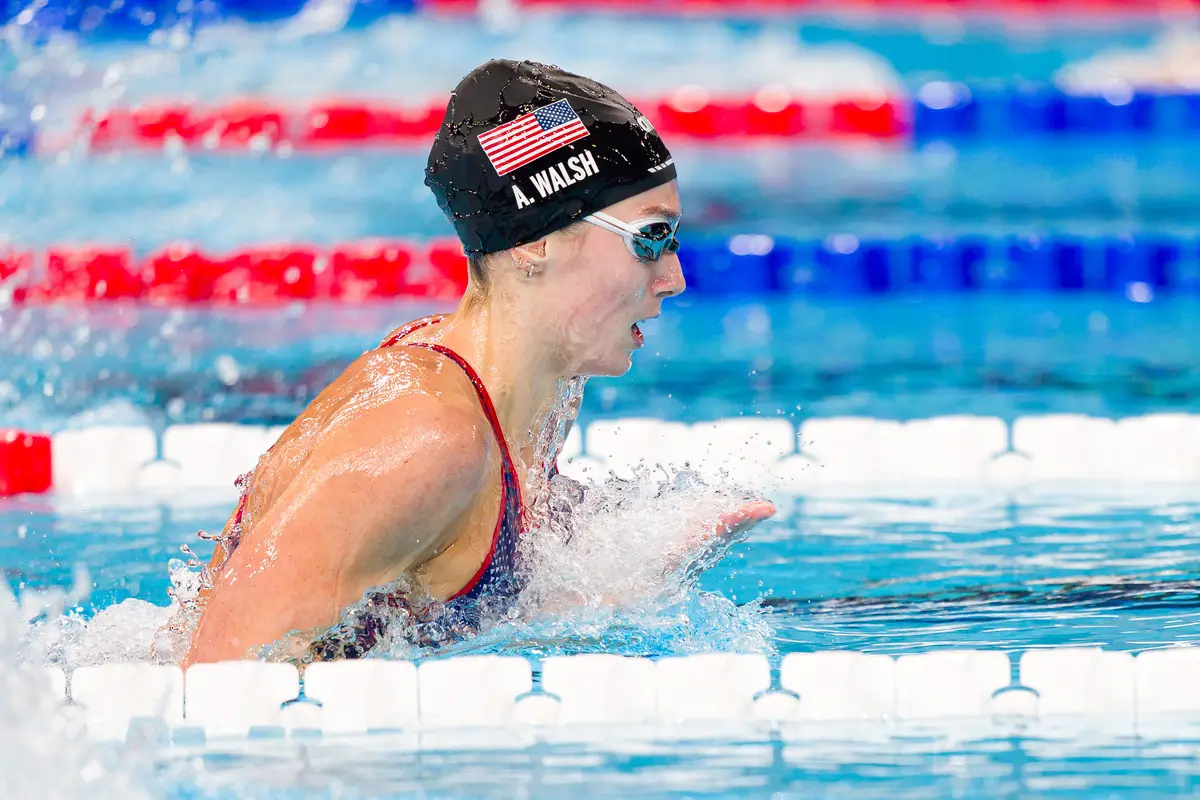
A US swimmer was disqualified from the Olympics despite coming third in her race after failing to meet the strict pool guidelines.
Swimmer Alex Walsh had her Olympics dreams crushed last week (3 August) after she was disqualified for breaking a controversial rule concerning her swimming transition.
The athlete won a silver medal at the Tokyo 2020 Olympics, but managed to finish third in this year's women’s 200-m individual medley.
Despite coming third, she was leading until the last 25m of the final freestyle lap, but was just pipped-to-the-post by Canada.
Advert
The disqualification came as a shock to Walsh, who looked visibly gutted after hearing the news.

It was her 'inappropriate transition' from backstroke to breaststroke which landed her in trouble.
The transition is a tricky one to master, but the rules are very clear.
According to the international swimming federation FINA, the same rules for each stroke apply in a medley race, and for backstroke 'the swimmer must touch the wall while on the back'.
In the individual medley, this has to happen before the swimmer transitions into the next stroke, which is the breaststroke that’s swam with the face down.
On Saturday, Walsh touched the wall to finish her backstroke leg, and unfortunately, her stomach was facing the bottom of the pool, which resulted in the heartbreaking outcome.
But there are multiple ways that it can be done correctly, some more slightly risky than others.

One is to touch the wall while still being on the back, and then pulling the knees into the chest to push off the wall while on the stomach.
Another involves a bit more gymnastics - going deeper and doing a backflip, flipping around to the stomach.
The third and way riskier move, is known as the crossover turn.
The swimmer touches the wall on their side after the last stroke on the back but making sure not to rotate past 90 degrees.
They rotate to get on their stomach all while maintaining contact with the wall in preparation for the breaststroke.
It all sounds very complicated, and it's easy to see how mistakes can happen.
But she isn't the only member of her family that is competing in this sport at the games.
Walsh’s younger sister Gretchen is also at the Paris Olympics and is proving to perform extremely well.
She won gold in the 4x100m mixed medley relay and silver in the 100-m butterfly and the 4x100m freestyle relay.
